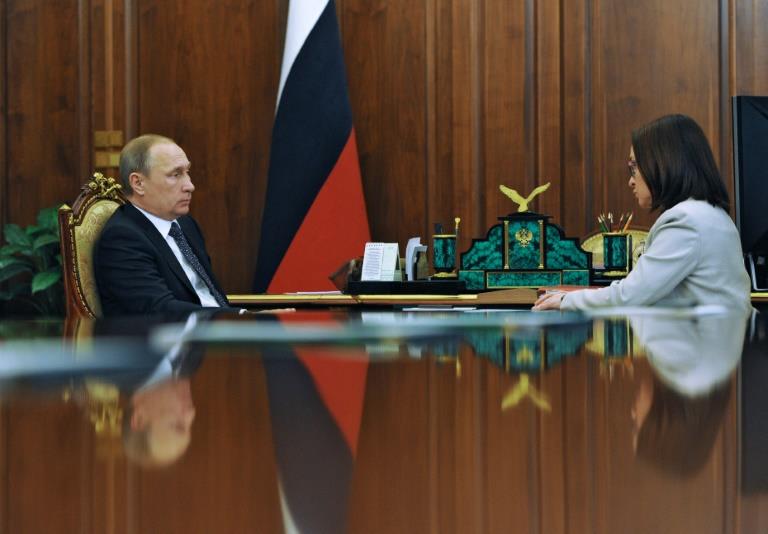
Russian authorities face pressure as ruble plumbs new lows
The ruble -- which has already been battered over the past 18 months by low energy prices and Western sanctions over Ukraine -- fell briefly down to 85.99 to the dollar before recovering to around 84.3 in the afternoon.
The ruble also fell against the euro, dropping to around 96.7 rubles per euro before firming back up to around 91.75.
Russia's recession-hit economy relies on oil and gas for over half of its budget revenues and the authorities are coming under increasing pressure to act to stave off further damage to the currency.
The Kremlin insisted that the ruble's plunge was "not a collapse", saying the authorities would be able to stop the rot.
"The exchange rate is really changing, the rate is volatile, but it is far from being a collapse," spokesman Dmitry Peskov was quoted as saying by Russian agency Interfax.
"There is no basis to suggest the central bank does not have plans drawn up to avoid a collapse."
With oil hitting 12-year lows, the ruble on Wednesday slipped past its previous weakest point of 80.1 rubles to the dollar that it crashed to during a dramatic slump in December 2014.
The Russian currency has so far this year lost over 12 percent of its value against the dollar, meaning that a recession officials had been claiming was essentially over looks set to last longer.
- Central Bank sits tight -
Russia's Central Bank has shrugged off the latest ruble slump and insisted it is not preparing to repeat the major rate hike it made in late 2014 as it struggled to save the currency.
Analysts, however, said that while the fall was down to factors mostly beyond Moscow's control, the authorities would have to react in some way to reassure the markets.
"It is understood that this is happening against a background of an international collapse with local factors being a part of it, but the lack of a reaction from the central bank and authorities raises some questions," Anton Tabakh from Moscow's Higher School of Economics told AFP.
But others argued that with Russia's currency just following the oil market, there was little that the authorities could, or should, do.
"Ruble exchange rate depreciation is now purely a function of the collapse of oil prices, and thus represents an adjustment of the fair value of the currency and does not require any CBR presence on the market," Alfa Bank said in a note.
The government has already admitted that tumbling oil prices will push it to slash spending as it struggles to keep the deficit to under 3 percent of gross domestic product (GDP).
So far there has only been muted public criticism of the authorities under President Vladimir Putin, who tightly control the state media, and the strongman's rating remains close to an all-time high.
But with legislative elections coming up later in the year, the government will face a difficult time as it tries to keep a lid on public discontent and balance its books.
The International Monetary Fund (IMF) on Tuesday downgraded its forecast for Russia, predicting that the country's economy would contract by 1 percent this year.
The IMF warned that slower Chinese growth, a stronger US dollar and the collapse in oil prices could all wreak further havoc in struggling economies like Russia's.

Legal Disclaimer:
MENAFN provides the
information “as is” without warranty of any kind. We do not accept
any responsibility or liability for the accuracy, content, images,
videos, licenses, completeness, legality, or reliability of the information
contained in this article. If you have any complaints or copyright
issues related to this article, kindly contact the provider above.

















Comments
No comment